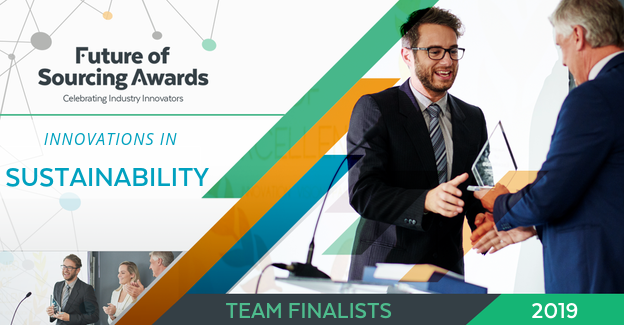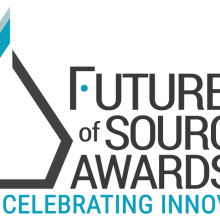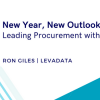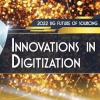Can you outline why your team embarked on this project and the problem that needed to be solved?
Sustainability has increasingly become a core business objective for global organizations large and small, allowing companies to drive profits while benefiting people and the planet. However, there was not a holistic technology that can include Sourcing and Procurement teams to address these tasks and processes and deliver measurable results. The SAP Ariba team took on this project to develop a technology solution to drive insights and intelligence into procurement processes, making sure companies can effectively identify and mitigate risks in their supply base, looking at potential supply chain issues such as workplace diversity, modern slavery, working condition, as well as other social risks before they impact the company’s business operations and brand reputation.
How were things done originally and what was the inspiration to innovate the process?
Driving sustainability results and managing supplier risks go hand in hand. However, in many organizations, supplier information and risk data is fragmented, scattering across spreadsheets, Google searches and emails. Supplier due diligence is usually done sporadically. Manual risk scoring is costly, time consuming and often misses key market signals. There is no holistic view of supplier risk intelligence and sustainability indices, which can often lead companies to unknowingly engage suppliers that pose risk, yielding unrecoverable business disruptions. Lastly, there is not a uniform approach to quantify sustainability metrics in the supply chain. Conquering these challenges was the main inspiration for the SAP Ariba team to develop its supplier risk and sustainability insights solution. To date we have developed a product that can assess, monitor and mitigate 200+ supplier risk incidents including modern slavery and diversity, and we continue to build out functionalities and partnership ecosystems to expand our risk and sustainability coverage.
What KPIs did you use to measure success for this project? (For example: performance, customer satisfaction, revenue, sales or relevant financial gains?)
In SAP Ariba’s efforts to develop the supplier risk and sustainability management technology, we have three sets of KPIs to measure our success: Net Promoter Score (NPS) to make sure our customers are happy, Risk Exposure KPI to make sure our solution is technically sound, plus the elevated goal of doing our part to make this world a better place, a place with a sustainable future for our children and their children. In detail:
- We track the Supplier Risk Exposure KPI to make sure it measures risk level and supplier concentration for each risk area accurately, comprehensively and in a timely manner.
- To make sure our customers are successful, we’d like to enable an integrated, end-to-end supplier risk and sustainability management process, with the collaboration among sourcing, procurement, Governance, Risk and Compliance (GRC), and other business teams, as well as the suppliers they work with. We aim to serve timely risk and sustainability intelligence and insights to guide each of the key business decisions made in the source-to-settle process.
- Our goal is to ensure that our customers have the ability to access real-time, comprehensive and relevant intelligence for Sourcing and Procurement teams, based on the categories they work on, the business they run and location they focus on. We leverage technologies such as artificial intelligence and machine learning, as well as global partnerships across public, private, and NGO sectors, to make sure we capture every bit of risk and sustainability signals and translate them into actionable insights for the teams that need to make business decisions.
- Beyond that, we aim to use technology as a catalyst to help our customers achieve ethical sourcing, address modern slavery, diversity, and environmental cost data, as well as other factors that would not only help companies minimize risks in their supply chain, but also deliver measurable social impact. These social impacts can greatly increase our customers’ shareholder value (by as much as 13X according to studies). It can also boost employee retention as more and more people around the world value sustainability in their own workplace.
How you plan to ensure that the new model remains relevant and adapts to the future needs of the market?
Our solution officially launched less than three years ago and last year we have already been placed as the winning supplier management solution in the Forrester Wave report (“The Forrester Wave Supplier Risk and Performance Management Platforms Q1 2018”). We continue to learn and grow with our customers and partners. For instance, more and more companies now have risk and sustainability officers embedded in procurement organizations. Hence we’ve developed technologies to work with this new organizational change, stating from a specific product flow called “Know Your Suppliers” – allowing our customers to have a holistic view of their supply base and carve out program and budget to address risk issues, such as modern slavery, workplace diversity, and operational shortfalls.
For customers in regulated industries, we enable “Third Party Risk Management” processes to meet regulatory compliance requirements, such as Information Security. We also leverage partnerships – both regional and global, to get to the supplier insights we need to provide for customers. For example, SAP Ariba partnered with EcoVadis to bring its environmental, human rights, ethics and ethical sourcing indices into our solution, helping our customers drive supply chain transformation. These extensions are enabled through an innovative API framework and SAP’s partnership model that’s easily expandable.
What advice do you have for those who may want to implement this innovative approach in their own organizations?
Both short-term and long-term benefits can be realized by implementing SAP Ariba Supplier Risk. Benefits are possible almost immediately simply by knowing the risk exposure of your imported vendor master. SAP Ariba cleanses the information with our proprietary technology, and automatically brings in risk and sustainability information from internal and external data sources, so you can start building a history for these suppliers to aid your procurement decisions, for instance when you draft a vendor contract. For companies operating in regulated industries, business requests drive the right due diligence. In order to do this effectively, be sure to assemble a team that can tackle change management head on.
What we often see is that technology implementation and change management take place simultaneously. Getting the right people involved and developing the projects in phases will pay dividends in the long run. In the meantime, rest assured that we’ve already built in many best-practices into solution workflows, so that you can perform a variety of tasks automatically, often reducing process time from months to weeks.
Why do you feel that it is necessary to bring innovation to sustainable sourcing?
The world is changing. For any company that sells goods or services, their customers and investors are rewarding businesses that make significant effort to drive social, economic and environmental sustainability. For instance, 80% of consumers in emerging markets will pay a premium for goods from companies who actively work to reduce their environmental footprints. As a result, procurement’s mandates are evolving – they’re not only managing efficiency and cost, but also supporting diversity and corporate responsibility priorities, proactively identifying delivery and performance disruptions, and protecting corporate brand and reputation from unethical supplier behavior. Technological innovations in sustainability and impact sourcing is a crucial piece in this puzzle, enabling companies to drive both business and social outcomes to make this world a better place.







